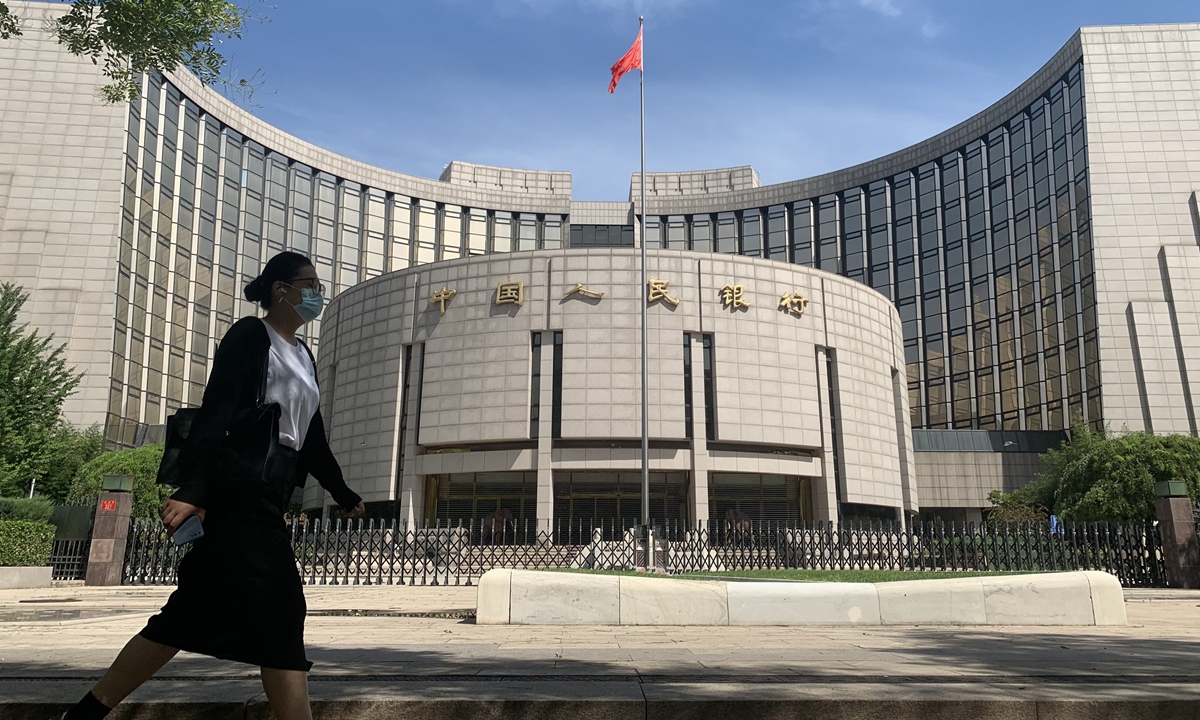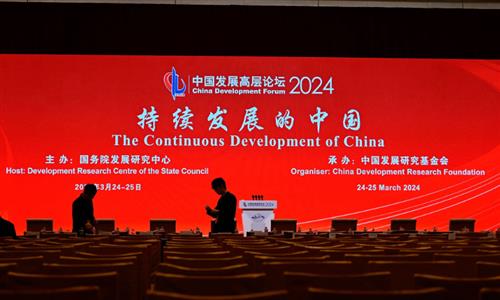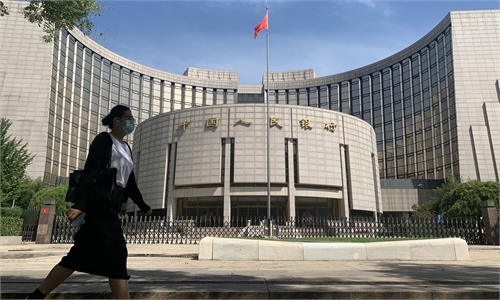
A view of the PBC building in Beijing Photo: VCG
China's central bank opted not to inject any short-term cash into the financial market on Wednesday for the first time since 2020. Analysts noted that China's economy has ample cash and there is no need to inject more cash to add liquidity.Total liquidity is currently adequate at a reasonable level in the banking system. According to the demand of primary dealers in the open market, the amount of reverse repurchase operations was zero on Wednesday, the People's Bank of China (PBC), the central bank, said in a statement.
As 251.67 billion yuan ($35.2 billion) of central bank reverse repos matured on Wednesday, a net 251.67 billion yuan was returned to the system. A repo, or repurchase agreement, is a process in which a central bank sells bonds to financial institutions and promises to buy them back in the future.
Since August, the scale of the PBC's reverse repo operations has been extremely low, setting a new low since 2015 and falling to zero on Wednesday.
"This is mainly due to the easing of market liquidity. The PBC recently carried out micro-operations in the open market to reasonably recover short-term excess funds," Zhou Maohua, an economist at China Everbright Bank, told the Global Times on Wednesday.
The central bank's decision to forgo short-term cash injections indicates that China's economic activity is improving and its economic growth is resilient, and there is no need for more stimulus from liquidity, Tu Yonghong, a deputy director of the International Monetary Institute at Renmin University of China, told the Global Times on Wednesday.
China's central bank rolled out more innovative tools last month to ensure reasonable, ample liquidity to bolster the economy. The PBC said that it will carry out temporary bond repurchase agreements or reverse repos starting from July 8, an act that analysts said aims to keep liquidity reasonable and ample in the banking system and improve the accuracy and effectiveness of open market operations.
Market observers believe that the PBC has recently increased counter-cyclical adjustment efforts, and they expect that the central bank's monetary policy easing efforts will be further increased within the year.
"The objective of monetary policy is to maintain appropriate liquidity, promote economic development and achieve annual economic targets. At the same time, the goal of monetary policy is to keep the yuan exchange rate stable under the balance of international payments," said Tu.
The yuan has rallied sharply recently. The central parity rate of the yuan was set at 7.1386 per US dollar on Wednesday, according to the China Foreign Exchange Trade System. On Monday, the onshore yuan reached a seven-month high of 7.1120 against the US dollar.
The appreciation of the yuan has an impact on international capital. If the yuan continues to appreciate, foreign capital flows into Chinese assets will accelerate, Yang Delong, chief economist at Shenzhen-based First Seafront Fund, told the Global Times on Wednesday.
"As the likelihood of a US Federal Reserve interest rate cut increases, the attractiveness of the US dollar will diminish, which in turn will boost the appreciation of other currencies, including the yuan," said Yang.
Observers said that historically, foreign capital flows into China's stock market have been inversely correlated with US dollar interest rates.



